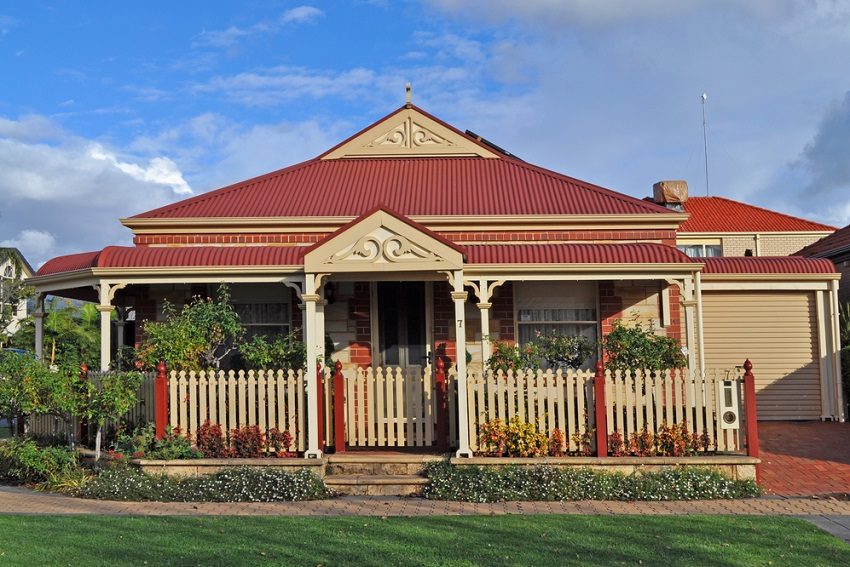Who Gets To Go Home?

I moved to Adelaide last year. I love it. I love my house, I love my suburb, and I love this city. Adelaide is home. This happy story has kept the idea of home at the front of my mind over the past 18 months.
My appreciation of the value of home was sharpened in the run-up to the Federal Election. While we may not at first recognise it, home is the human dimension of one of the flashpoints of campaigning: house prices and negative gearing. This concern is underpinned by the importance and inaccessibility of the idea of home, in contrast to property. It raises the question: who gets to make a home? We know what we mean when we talk about home. It is a personally and culturally valued idea, one that is familiar and complex. For most South Australians, it is more than bricks and mortar. So, perhaps not surprisingly, social scientists talk about five dimensions of home. Home is a haven. It is a place that is private and separate. When we are at home, we are protected from the surveillance and judgement of the world. Home is a place of psychological rest and emotional wellbeing. When we feel ‘at home’, we enjoy a sense of belonging, order and comfort. Home is a place where we can create rituals and routines. Through these, we build a sense of personal control over our space and our life. Home is where family and other important relationships are located. When we go home, we are returning to the people we care about, as much as the place in which they live. And, of course, home is necessarily a physical place. Without shelter, there is no place where the social and psychological dimensions of home can be built and enjoyed.
 “Home is where the heart is”
“Home is where the heart is”
Social scientists point out that home has benefits beyond the feel-good factor. When we have a home, we enjoy constancy, autonomy and safety. These build ontological security, which is the wellbeing that comes from trusting in the constancy of our lives and environment. Ontological security is a foundation for developing our sense of self, belonging, and our capacity to shape our lives. When we cannot make a home, these psychological resources are eroded. Drawing these threads together, we can begin to appreciate that home is an unspoken but important element of the tussle over high house prices and negative gearing. Housing affordability and debt are important financial concerns. This is particularly so given that property is a key strategy for wealth creation, a financial buffer, and central to the retirement planning of many Australians. But the intensity of the debate reflects a sense of betrayal of the Australian dream of home ownership – which is not the same as owning property.
 Adelaide’s suburbs pioneered the idea of a ‘garden city’ where home ownership would be commonplace
Adelaide’s suburbs pioneered the idea of a ‘garden city’ where home ownership would be commonplace
Owning a home has long been part of the Australian psyche. Early British and post-war migrants were paid relatively good wages for their labour, and could afford to build a home with that money. This was a revelation for many who would never have had that opportunity if they’d stayed in their country of origin. The cultural value placed on home ownership remains high: renters are unfairly and simplistically seen as ‘losers’ in the housing market, living a truncated adulthood. Owning a home also meant security of tenure – and it still does. Much lower proportions of Australians enjoy reliable, long-term rental accommodations compared to Europeans, for example. The majority of Australian renters live with fixed short-term leases of six or 12 months. There’s no guarantee that the home you’ve made today will still be your home come Christmas.
 What likelihood do young South Australians have of owning their own home?
What likelihood do young South Australians have of owning their own home?
Owning a home also meant a higher level of self-sufficiency. The iconic quarter acre block allowed for vegetables and fruit for the table, and some pin money for the housewife selling the excess eggs. The glasshouses, fig and olive trees we inherit when we move into an older South Australian house are an echo of this. Australians are less likely than they once were to grow their own food (although around half of Australian households produce some of what they eat). But the desire for a stable place to live remains as pertinent as it ever did. Home ownership is a financial issue, but it is more than that. When people are priced out of the property market, they fear they are priced out of security, comfort, and control, and the emotional and psychological wellbeing these engender. There’s never been a time when all Australians have been able to buy their own home. But the fear and disappointment given voice in the debates on housing reflect the deepening fault lines of financial and psychological security that cross-cut our suburban landscapes. Dr Kristin Natalier is an Associate Professor at the School of Social and Policy Studies at Flinders University